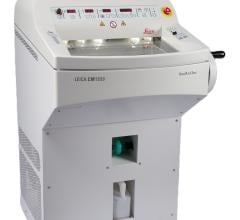
Getty Images
November 16, 2020 — Medtronic announced that it has completed its friendly tender offer for France-based Medicrea International, a pioneer in the transformation of spinal surgery through artificial intelligence (AI), predictive modeling and patient specific implants. On July 15, 2020, the parties announced a friendly voluntary all-cash tender offer at the price of €7.00 per Medicrea share. As a result of completion of the tender offer, Medtronic currently owns in excess of 90% of Medicrea's share capital and voting rights and will shortly request the implementation of a squeeze-out procedure under French law, which will result in Medicrea becoming a wholly-owned subsidiary of Medtronic.
This is Medtronic's seventh acquisition completed in 2020 and furthers Medtronic's strategic expansion into AI, machine learning and predictive analytics.
Medicrea's product portfolio consists of 30+ 510(k) cleared or CE Marked implant technologies, utilized in spinal surgeries for adult deformity, pediatric deformity and degenerative disease. The Medicrea solution is powered by predictive modeling and sophisticated algorithms that measure and digitally reconstruct a patient's spine to its optimal profile. The UNiD™ ASI (Adaptive Spine Intelligence) platform has seen rapid growth this year despite elective surgery restrictions resulting from COVID-19. By acquiring Medicrea, Medtronic will become the leader in personalized implants and AI-driven planning and prediction capabilities – setting a foundation for the future of individualized patient care.
"We have entered the age of augmented intelligence in spinal surgery at the point of care," said Christopher Ames, M.D., director of spinal tumor and spinal deformity surgery at UCSF Medical Center in California. "Through the power of predictive models, data collection and machine learning, a unique capability is created, allowing for a continuous cycle of improvement. Physicians will have augmented eyes through surgical navigation, augmented hands with robotics, and most importantly, augmented intelligence through full integration with machine intelligence impacting all aspects of the care pathway. This type of technology will likely lead to safer procedures and more reliable outcomes while preventing costly revision surgery. It is rewarding to see the spine industry fully embracing these new capabilities and investing in the future."
Spine surgery is one of the more complex procedures in healthcare because of the high number of different parameters that must be taken into consideration. In conventional spine surgery, surgeons manually bend spine rods in the operating room and there can be large variability in outcomes. The UNiD ASI platform uses a database of over 6,000 surgical cases to power algorithms that visualize multiple permutations, allowing surgeons to better understand their patients alignment before surgery, customize a surgical plan and use a personalized rod bent in the optimal plane to help ensure the goals of the surgery are achieved.
"By offering clinicians one of the most innovative, ground-breaking technologies, Medtronic is redefining spine procedures to help reduce variability and improve outcomes, with the ultimate goal of restoring long-term quality of life for more patients," said Jacob Paul, president of the Cranial & Spinal Technologies operating unit at Medtronic. "Medtronic now becomes the first company to be able to offer an integrated solution including artificial intelligence driven surgical planning, personalized spinal implants and robotic assisted surgical delivery, which puts the power of these smart technologies directly into the hands of clinicians to make patient care more tailored and personalized."
The acquisition builds on an exciting phase of innovation and growth for Spine at Medtronic with the acquisition of Mazor Robotics in 2018, Titan Spine last year, the recent launch of the Adaptix Interbody System, and recently cleared innovative new capabilities on Mazor robotics products.
For more information: www.medtronic.com


 February 17, 2026
February 17, 2026 









